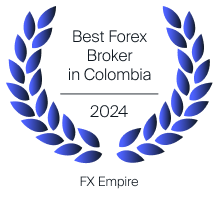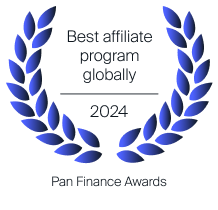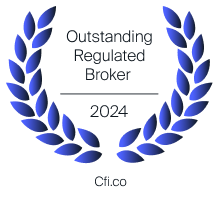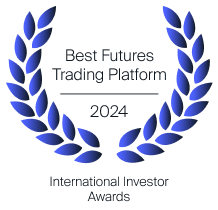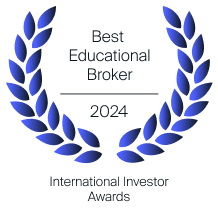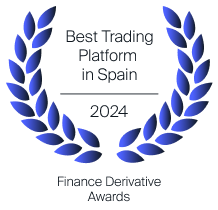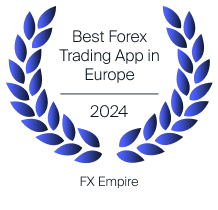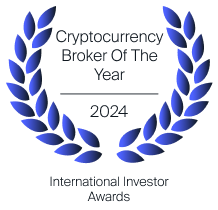Teva Stock
 Loading...
Loading... | Instrument:TEVA |
Trade Teva Stock
Teva Pharmaceutical Industries Limited, headquartered in Petah Tikva, Israel, is a world leading producer of generic drugs and a variety of branded medicines. Teva has a rich history that dates back to 1901 when Chaim Salomon, Moshe Levin and Yitschak Elstein founded a small wholesale drug business in Jerusalem, which was named S.L.E after its founders. In 1935, Teva was established as an additional branch of S.L.E by Dr Gunter Friedlander in Jerusalem. Between 1930 and 1940, the company became the sole source of pharmaceutical supplies for the local market, neighbouring countries as well as the British Army, which was stationed in the Middle East. In 1951, rapid expansion led to Teva being listed on the TASE (Tel Aviv Stock Exchange) as the Teva Middle East Pharmaceutical Chemical Works Company Ltd. With the consolidation in the local pharmaceutical industry in the 1960s, Teva became Israel’s largest drug maker.
From the 1980s, Teva started going global. A major milestone occurred in 1982 when Teva expanded internationally, capitalising on the passing of the Hatch-Waxman Act to enter the US market in the generics sector. Teva held its NASDAQ IPO on February 26, 1987, becoming one of the first healthcare brands to achieve dual listing. It trades under the ticker symbol TEVA and falls under the healthcare industry and pharmaceutical category. As of October 2018, Teva produces over 120 billion tablets annually and enjoys leadership positions in over 40 markets around the world.
The company derives over 60% of its revenues from its extensive generic product portfolio. But its most successful product is its branded Copaxone drug that treats multiple sclerosis. Copaxone once contributed as much as 20% to Teva’s bottom-line, although it faces competition from other generic entrants, in 2018, maintained a firm 85% control of the market share. Teva has achieved global dominance by being an aggressive buyer. Some of its biggest acquisitions include companies such as:
- Actavis Generics, a $39 billion acquisition that significantly increased their generics product portfolio;
- Anda, a leading US distributor of generic pharmaceuticals;
- Ratiopharm, the largest generics drug maker in Germany;
- Cephalon, a US specialty drug maker for pain, sleep and cancer medicine;
- IVAX Corp, a US-based oncology and respiratory products maker with a strong presence in Latin America as well as Central and Eastern Europe;
- Auspex Pharmaceuticals, a US neurology drug company.
Teva Stock History
Teva began trading on the NASDAQ in 1987 with a number of shares splits as follows: 2-for-1 on the 14th of April 1993; 2-for-1 on the 23rd of February 2000; 2-for-1 on the 12th of June 2002; and 2-for-1 on the 1st of July 2004. Interestingly, in March 2012, Teva began trading on the New York Stock Exchange. Being the largest generics drug maker in the world, as of October 2018, Teva stock has been a consistent performer over the years. It achieved its highest ever stock price in August 2015 when it touched $72 a share, following the trademark acquisition of Actavis. This also gave the company its highest ever valuation at the time of $61 billion. In 2017 the stock had a particularly bad year, as it eroded over 80% of its value from the 2015 highs.
The Actavis deal turned out to be overpriced and left Teva burdened with debt, despite achieving status as the largest drug maker in the world. As of October 2018, Teva’s market capitalisation stood at $21 billion. Teva has been a generous dividend payer. It started paying out dividends in February 2005, dishing out $0.30 per share quarterly to shareholders. The quarterly dividends grew consistently until 2014 when Teva paid out $1.21 per share. Following the huge Actavis deal, Teva cut quarterly dividends in 2015 to $0.34 per share, and even further in 2017 to $0.085 per share. In December 2017, Teva announced a suspension of dividends on its ordinary shares and ADRs as it sought to drive down its overall debt significantly.
How to Trade Teva Stock
The consensus in Wall Street is that Teva is a high-value stock as it operates in an inelastic industry. Demand for various drugs is difficult to determine because it is so hard to predict what illnesses, when and how many people will fall ill or need treatment. However, this is an industry typically immune to recessions and political factors. It also has many other fundamental factors going its way, including increased longevity that will continue to increase the demand for drugs used for both treatment and maintenance therapies. Still, investors should consider the following factors when trading Teva stock:
- Legislative or Taxation Policy Changes
Teva sells its products all over the world. Medical products are usually the target of frequent legislative and taxation policies. For instance, the United States President, Donald Trump, started pushing for lower prices for medical products in 2018, like the main competitor Medtronic. Even though Teva enjoys the pricing power of generic products, such legislation could greatly impact its bottom line. - Raw Material Price Dynamics
Aside from its headquarters in Israel, Teva has production facilities in over 80 locations around the world. This means that it sources its raw materials from different places. Changes in raw material prices in any particular region(s) can impact profit margins and consequently, the stock trading price. - New Product Rollout
The pharmaceutical industry is characterised by high research and development costs as companies continuously seek to improve healthcare services. Still, the delicate nature of the industry means that is also heavily regulated. The FDA (Food and Drug Administration) is the primary regulator of the industry, and an FDA approval is crucial for any pharmaceutical product. If Teva releases a new product which is subsequently approved by the FDA, investors will be excited, and its stock price will react accordingly. However, if a drug does not get FDA approval, then it can wreak havoc on the share price. - Periodical Earnings Reports
Teva’s fiscal year runs from January 1 to December 31, and the company releases quarterly financial reports to keep shareholders posted on its business health. Earnings reports also serve as an avenue for declaring dividend payouts (or lack thereof), announcing profit or loss warnings, as well as releasing future business projections.
As pharmaceuticals is a fast-paced industry, it is prudent to track these factors for short- and medium-term impacts on the stock price. This will offer more quality trading opportunities, as opposed to tracking long-term effects when the factors would have been priced at the prevailing stock price.
Teva Stock Trading Information
- MT4 Symbol: #TEVA
- Trading Time: Monday – Friday 13:00 – 19:59 London Time GMT
- Country: USA
- Currency: USD
- Exchange: NYSE
- Leverage: Up to
Why Trade Teva stock with AvaTrade
- International regulation
AvaTrade is a global multi-regulated broker, which ensures all its trading services are transparent, and client funds are safe and secure. - You can long or short Teva stock according to market conditions. Short sell Teva stock when it is trending lower.
- Leveraged trading
Trade Teva stock with a leverage of up to and enjoy higher profits with lower capital outlay. *This stock is available for trading with 0.001 lots. - Competitive spreads
Trade Teva alongside other global stocks with reduced costs. - Trading platforms
The intuitive AvaTrade trading platform suits both short- and long-term trading styles. Investors can profit from short-term price induced moves, such as a new product rollout; or potential long-term moves that can be inspired by factors, such as new project announcements. - Automated trading solutions
AvaTrade supports automated CFD trading strategies to help you take maximum advantage of trading opportunities day and night. - Education center
Free comprehensive financial trading education as well as access to daily expert market analysis and trading tips. - Support team
Outstanding multilingual customer support team.
Trade Teva stock and enjoy healthy trading conditions at AvaTrade.
Start Now!
Teva Stock FAQ
- Why should I trade Teva shares?
Teva is an Israel-based pharmaceutical company that specializes primarily in producing generic drugs. Once a favourite of investors the stock has suffered a severe downturn since 2015, but it remains a good choice for active traders since its price action exhibits the usual volatility associated with pharmaceutical companies. As the largest generic drug manufacturer in the world Teva shares can often benefit when a blockbuster generic drug is due to see its patent expire as some of these can contribute significantly to earnings once they are available as a generic version sold by Teva.
- Is Teva the best pharmaceutical stock for trading?
The price action of Teva is good, but it isn’t the best. And yet because of its niche in generic prescription drugs Teva remains a different type of trade in the pharmaceutical industry, and it is well worth watching on a regular basis for potential trade setups. Since mid-2019 the stock appears to have found a bottom, halting the steel slide that began in 2015 and opening up a potential trading pattern as the stock remains range-bound in a channel. Maybe not the best pharmaceutical stock, but certainly one that can be traded with relative safety.
- What’s the best strategy for trading Teva shares?
As mentioned above the current price action of Teva in late 2020 indicates a strategy that trades off the support and resistance levels of the trading channel for the stock that’s been in place since mid-2019. As a well-established channel it is fairly safe for traders as long as proper risk management is used. In addition, there remains the potential for the stock to make a breakout move at some time, which could potentially deliver a large win over a shorter period of time. The stock appears to have found a bottom, and can’t be expected to adhere to that bottom forever. Eventually we believe shares will want to retake former all-time highs, and a breakout move will be the start of that attempt.



